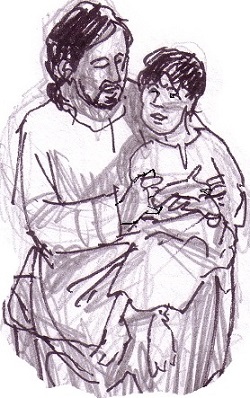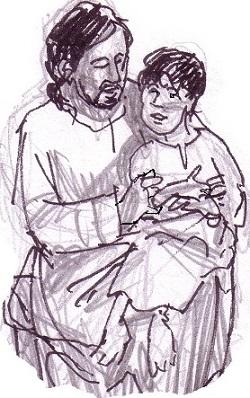

“An argument arose among them about which of them was the greatest” (Luke9:46).
The survival instinct in all of us has made competition part of basic human nature. Each of us operates out of a sense of self based on protecting our own interests. As we mature we learn that the common good is also in our best interests. If we balance our personal rights, freedom and responsibility with those of others, we make community possible.
American culture has a strong competitive streak built into its capitalist economic system and social norms, which prize rugged individualism, independence and self-reliance. Our politics, sports and entertainment exhibit fierce competition in which there are only winners and losers, victors and the vanquished. Greatness is defined as winning it all, being number one, the last one standing. Increasingly in our politics, compromise and collaboration are seen as weakness. Civil discourse and intelligent debate are boring compared to a good fight, tweets and sharp soundbites that take down an opponent with ridicule or name-calling.
The disciples of Jesus also argued about which of them was the greatest. His response was to place a child in their midst as the model of God’s measure of importance. A child’s dependence on others, simplicity and innocence were the antidote to competition and ambition. To receive a child teaches us about humility, gentleness and patience. Adults who can treat one another in this way make community possible. Jesus compares receiving a child to receiving himself and receiving God, and he tells his disciples that if they do not become like little children they will not enter God’s Kingdom.
When Fred Rogers, creator of the long-running PBS program "Mister Rogers’ Neighborhood," died in 2003 at the age of 74, he had become a cherished icon of how important children are to our national life. He made it his life’s work to convey the critical importance of early childhood development as the foundation of a humane and caring society. The neighbor in his television neighborhood was based on the “Good Neighbor” in Jesus’ parable of the Samaritan who cares for the man wounded on the road to Jericho. If everyone were this kind of caring neighbor, he believed, the whole world would become a neighborhood instead of what competition, violence and pride have made of it.
As we look for solutions to our many social, political, economic and environmental crises, what better place to begin again than by hearing Jesus’ call to make children the measure of all our efforts. If we make them our first concern, we will recover every other value that makes community possible, and also discover the gentile power of God once again in our world and in ourselves.
Advertisement







